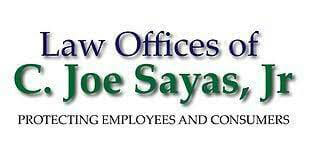Can employees suffer retaliation without discrimination?

Ernie Flores worked for about two years as a school principal for the Palo Verde Union School District in Tulare County, California. The students within the school district are predominantly Hispanic and Spanish was their first language. During Flores’ tenure as principal, student enrollment at the school increased. No one on the school board expressed any problem with his job performance.
In early 2018, Flores complained to the school board that it was discriminating against a job applicant on the basis of the applicant’s race. He was terminated in February 2018. The reason for his termination was that there were “anonymous” complaints that he spoke Spanish to students and played Latin music throughout the school during breaks. One complaint read, “Also, someone please remind him we are in America and that if he’s going to play music that we would like it to be in English and not in Spanish.” Another complaint stated, “Morning announcements by Flores continue with ‘mijo/mija’ and it needs to stop already.”
Flores sued the Palo Verde Union School District, alleging discrimination and whistleblower retaliation. He sought recovery for past and future loss of earnings and past and future emotional pain and suffering. Flores claimed that he suffered from emotional distress and had to switch careers as a result.
Flores contended that he was discriminated against for speaking Spanish to the students and playing Latin music and that the School District retaliated against him for complaining about a school board applicant’s failure to hire due to racial discrimination.
The employer argued that Flores was terminated for non-discriminatory business reasons related to his job performance, that the school board had lost trust in him, and that his termination had nothing to do with him speaking Spanish to his students.
The case went to trial. The jury did not find that Flores experienced discrimination but found that he was retaliated against for complaining about discrimination. Flores was awarded $3,625,752 in damages.
Why did the employee win on retaliation but not on discrimination?
Discrimination exists if an employee is fired, demoted or disciplined based on the employee’s protected characteristic (in this case, Flores’ race/ethnicity). However, the jury was not convinced that enough evidence was shown to indicate that the employer targeted Flores because of his race/ethnicity. In other words, the jury may have believed that Flores was terminated because the school board had indeed lost trust in him, which is a legitimate business reason.
However, the jury concluded that Flores suffered retaliation. Retaliation exists where an employee engaged in a “protected activity” and was then “punished” by a firing, a demotion, a reprimand, etc. for engaging in that activity. A “protected activity” includes an employee’s “reasonable” and “good faith” act of opposing a practice which is forbidden by law (e.g. discrimination).
In the case of Flores, his “protected activity” was his complaint that the school board engaged in discrimination in its failure to hire an applicant. The jury believed that by terminating him after the complaint (even though he had no prior performance issues and was, in fact, performing well), the employer engaged in retaliatory conduct against him.
The Law Offices of C. Joe Sayas, Jr. welcomes inquiries about this topic. All inquiries are confidential and at no-cost. You can contact the office at (818) 291-0088 or visit www.joesayaslaw.com. [For more than 25 years, C. Joe Sayas, Jr., Esq. successfully recovered wages and other monetary damages for thousands of employees and consumers. He was named Top Labor & Employment Attorney in California by the Daily Journal, consistently selected as Super Lawyer by the Los Angeles Magazine, and is a past Presidential Awardee for Outstanding Filipino Overseas.]

